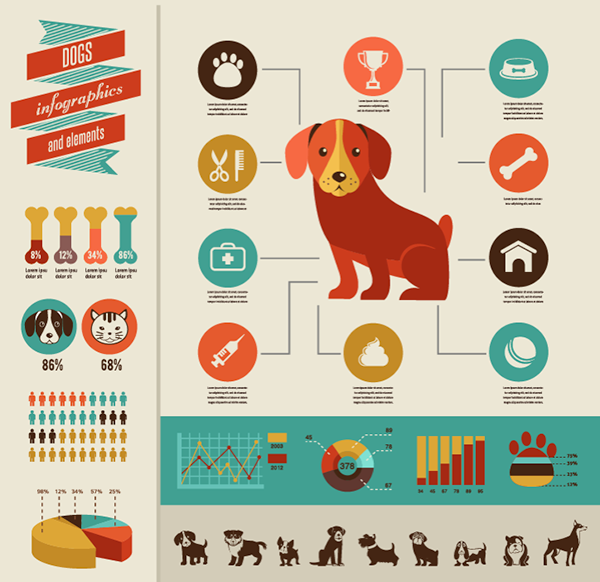How To Spot A Quality Dog Daycare What To Look For
How To Spot A Quality Dog Daycare What To Look For
Blog Article
Can Canine Day Care Cause Illness?
Dogs in childcare get lots of exercise, socializing with other dogs and one-of-a-kind experiences. This can be specifically practical for young puppies and dogs with behavior problems.
There are several legal considerations you require to think about when beginning a doggy daycare company. These consist of the framework of your organization and conformity with government regulations.
1. Canine Distemper
Canine distemper is spread with straight contact with the physical liquids and waste of a contaminated pet, but it can also be transmitted through common water and food bowls or via air-borne beads. This very contagious illness is most harmful for young puppies, however it can affect pet dogs of any kind of age and is deadly for a lot of if left unattended.
First symptoms of canine distemper often mimic a common cold, including runny eyes and nose with watery or pus-like discharge. As the disease progresses, a dog will develop fever, coughing, reduced appetite, vomiting and diarrhea. The virus can also attack the nervous system, resulting in seizures, shivering and partial or full paralysis.
Trustworthy childcares lower direct exposure to infection by calling for inoculations, regular health examinations and comply with stringent hygiene protocols. If your pup seems overly weary or hopping, a day off may assist him recover, but you should avoid taking him back to childcare till these signs and symptoms improve.
2. Kennel Coughing
Kennel cough, also known as transmittable canine tracheobronchitis or Bordetella, is a very transmittable viral or microbial illness that impacts the respiratory tract. It's generally moved with the exchange of saliva or air droplets that a sick dog breathes out. Social pets go to higher risk for infection due to their constant communication with one another, such as when they play, share food or water, sniff one another or merely fulfill in a congested environment like a dog park or childcare.
One of the most typical symptom of kennel cough is a relentless aggressive dog boarding near me and powerful cough that sounds like something embeded the throat or retching. Commonly, pet dogs will cough up foamy white phlegm. If left without treatment, a canine can develop pneumonia and go to severe risk for life.
A reputable childcare center ought to have strict cleansing and cleanliness protocols, disinfect all toys, food and water bowls routinely, and be open about their inoculation policies. Maintaining your pet dog as much as date on their inoculations, particularly for bordetella and canine influenza, will substantially minimize their chances of getting the health problem.
3. Parvovirus
Canine parvovirus, or parvo, is a highly transmittable viral health problem that can be fatal for puppies and young person dogs with inadequate immune systems. It's most commonly spread out by direct contact with infected pet dog feces-- which can happen when pets sniff, lick, or preference contaminated feces-- and indirectly from contaminated individuals, objects, or settings (like kennels, grooming areas and yards). Puppies and pet dogs without complete inoculation histories are specifically prone to parvo.
The virus is very resilient, making it through in the environment for approximately nine years, and can conveniently be transferred in between canines by call with feces or on footwear, garments, and bedding polluted with parvovirus. If not dealt with immediately with IV liquids, electrolyte balance, throwing up control medications and anti-biotics to prevent second bacterial infections, a pet dog will rapidly dehydrate and create serious looseness of the bowels, which results in shock and blood poisoning. Parvo is difficult to treat once a canine has actually ended up being ill, yet with suitable vet care, lots of puppies do survive this ailment.
4. Dog Flu
Canine flu infection is extremely transmittable and spreads through straight call, sharing food and water bowls, licking or nuzzling other pet dogs, through airborne beads, and through polluted surface areas. Vaccination is effective in lowering the risk of infection and break outs.
The majority of impacted pet dogs create a mild breathing infection with a coughing that lasts 1-3 weeks. They may likewise have nasal and eye discharge, sneezing, and lethargy. A few of one of the most major instances cause pneumonia and a high fever.
If your canine shows any one of these symptoms, do not bring them back to day care till they are healthy. If your dog is showing indications of severe fatigue or limping, speak to your veterinarian immediately and make certain they get on good health supplements to assist develop their resistance. A vet will assess your pet dog for signs and symptoms of the flu by taking a sample from the nose or throat, and blood tests can be done to verify.